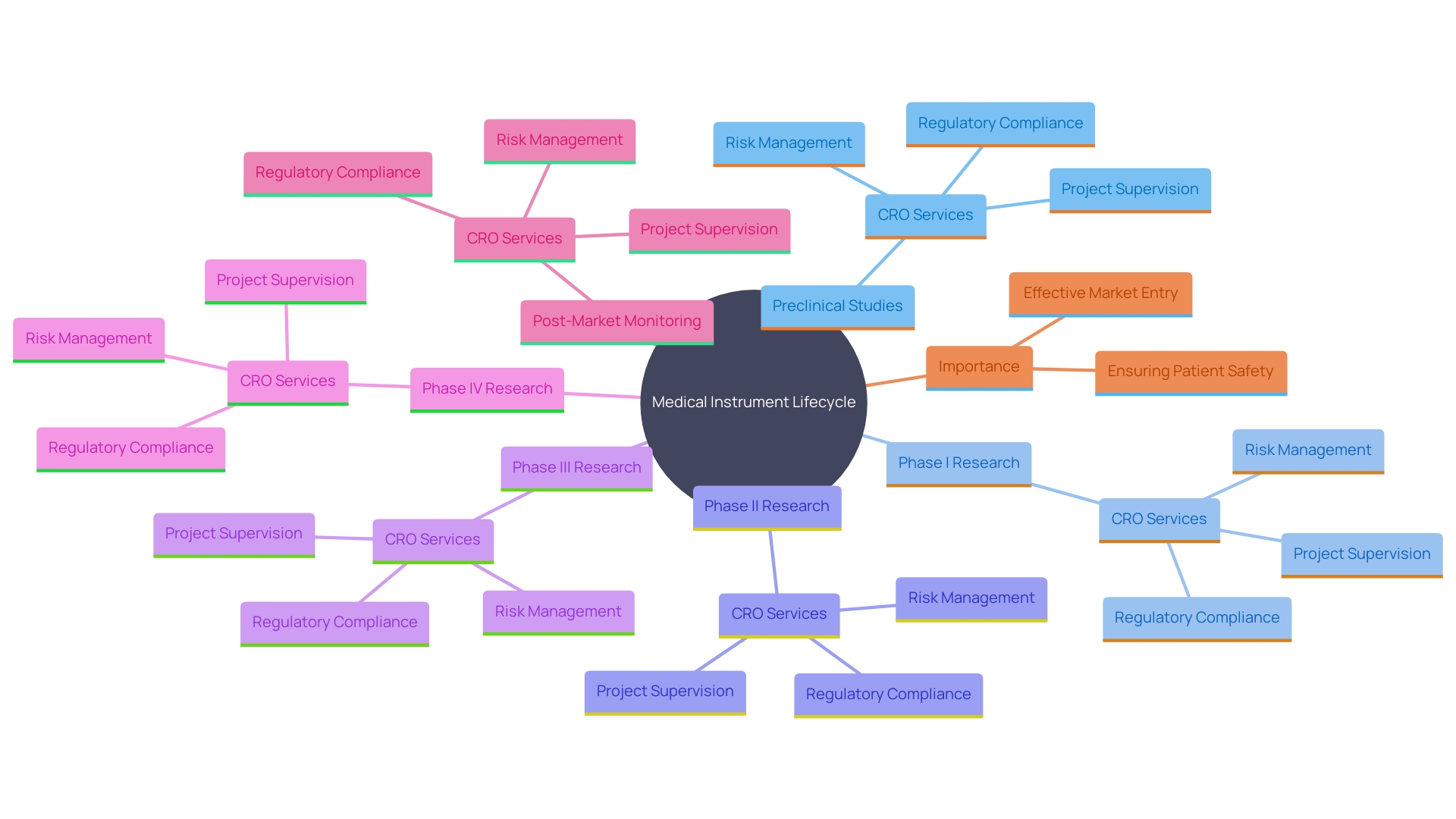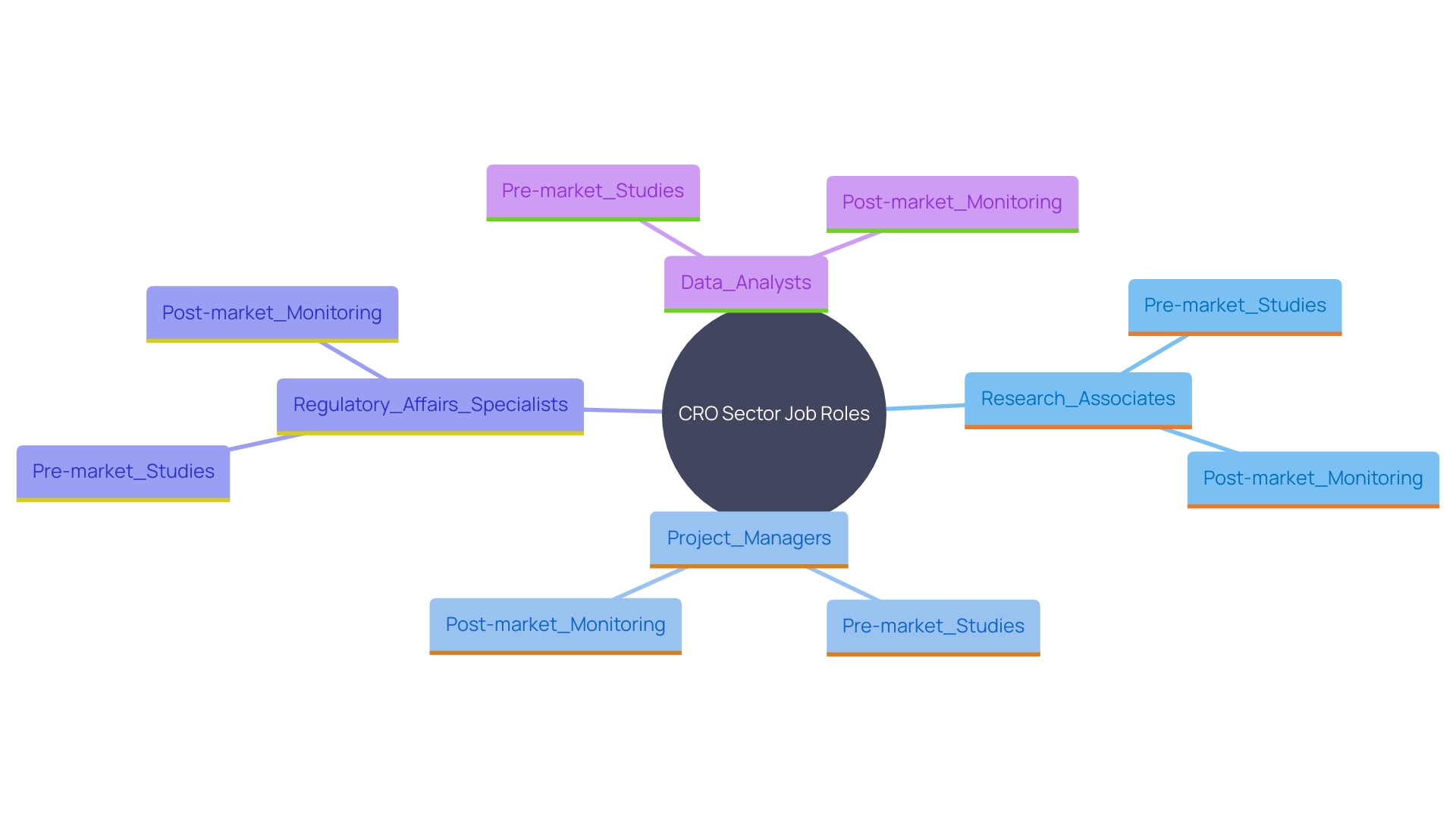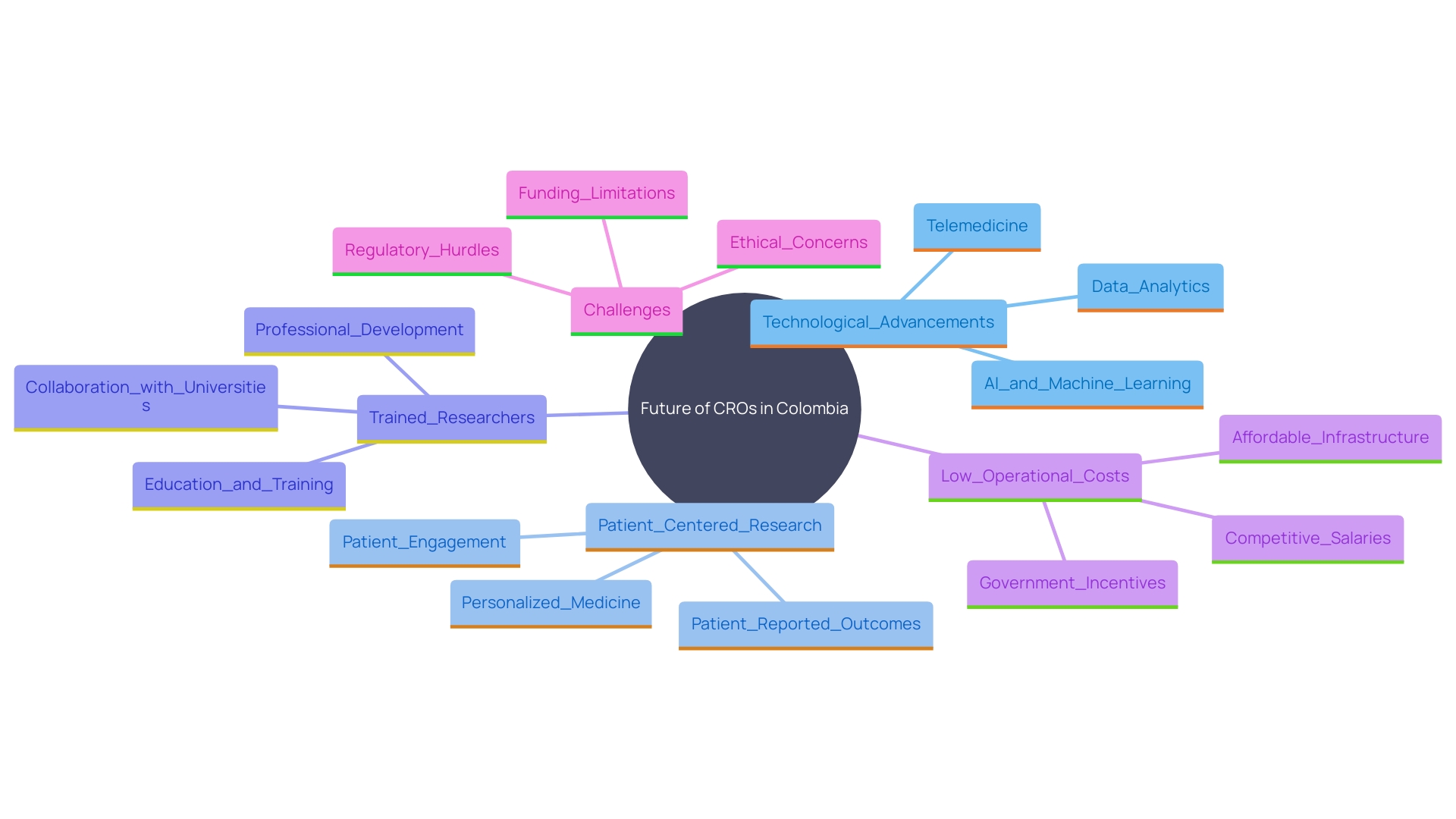Introduction
In the rapidly evolving landscape of medical device development, Contract Research Organizations (CROs) have emerged as vital partners, providing specialized services that support the entire lifecycle of medical devices. CROs conduct nearly three-quarters of medical device clinical trials, playing a significant role not only in pre-market studies but also in various phases such as Phase I to IV clinical trials, patient recruitment, data management, and regulatory compliance. Their expertise is indispensable in navigating the complex regulatory landscape, ensuring compliance with both local and international guidelines, and ultimately, contributing to the timely and successful market entry of medical devices.
Colombia's CRO industry exemplifies this critical role, with key players like bioaccess™ and Everest Clinical Research offering tailored services to both local and multinational clients. These organizations leverage their deep understanding of regional regulatory environments and access to diverse patient populations, facilitating efficient and effective clinical trials. Moreover, the sector's expansion has led to a surge in job opportunities, attracting skilled professionals across various roles such as clinical research associates, project managers, and regulatory affairs specialists.
As the industry looks to the future, technological advancements, patient-centered research, and a growing healthcare market position Colombia's CROs for significant growth. The integration of AI and machine learning, coupled with innovative trial designs, is set to transform clinical research, making it more efficient and inclusive. This promising outlook underscores the crucial role of CROs in advancing medical science and improving patient outcomes worldwide.
Contract Research Organizations (CROs) Defined
Contract Research Organizations are essential collaborators for the medical equipment sector, providing specialized services that cover the complete lifecycle of a product. Almost three quarters of medical device studies are carried out by contract research organizations for sponsors, making them a popular option for research operations. However, it's a common misconception that CROss are only involved in pre-market research studies. In reality, they play a crucial role in various phases, including Phase I, II-III, and IV trial management, patient recruitment, data management, and regulatory compliance.
The need for clinical activities and resources is continuous, necessitating expertise at every phase of the lifecycle of the equipment. Contract research organizations offer a wide range of services, from study design and patient information management to ensuring compliance with regulatory requirements. For instance, companies must present a comprehensive study protocol, patient inclusion and exclusion criteria, and a detailed scope of work that distinguishes in-house tasks from outsourced ones. Early engagement with CROs, sharing timelines and device descriptions, can streamline the process and enhance efficiency.
The worldwide medical research support services sector is expanding, fueled by increasing collaborations and strategic alliances among industry participants. North America remains a dominant hub due to its robust pharmaceutical and biotechnology sector, advanced healthcare infrastructure, and favorable regulatory environment. Key players like IQVIA Holdings Inc. and PPD Inc. significantly contribute to this growth. Furthermore, technological progress like machine learning and artificial intelligence is being employed to enhance study design, patient selection, and overall effectiveness, highlighting a patient-focused approach to research.
The Role of CROs in Medical Device Development
Contract Research Entities are essential in the medical equipment industry, overseeing the complete lifecycle from initial idea to market launch. Almost seventy-five percent of research studies for medical instruments are carried out by contract research organizations on behalf of sponsors, highlighting their crucial role in research activities. Contrary to the misconception that contract research organizations are limited to pre-market studies, they are integral at every stage of the product lifecycle. This encompasses carrying out Phase I to Phase IV research studies, preclinical investigations, and post-market monitoring to guarantee that medical instruments adhere to regulatory criteria and effectiveness requirements.
Clinical research organizations offer a complete range of services that go further than pre-market studies. They assist MedTech companies in navigating the complex regulatory landscape, ensuring compliance with both local and international guidelines, which is crucial for timely market entry. Alongside managing experiments, clinical research organizations provide knowledge in project supervision, risk reduction, and oversight of study execution, establishing them as vital collaborators in the advancement of medical tools.
The significance of clinical research organizations is further underscored by the reality that medical instruments have been associated with considerable safety issues, including more than 1.7 million injuries and 83,000 fatalities in the United States over a ten-year period, according to a 2018 FDA study. Ensuring strict medical studies and post-market monitoring is therefore essential. For instance, the firm Encellin, which created its technology at the University of California, depends on contract research organizations to progress its Phase 1 clinical trial, showcasing the therapeutic advantages of its groundbreaking products.
In the rapidly evolving healthcare landscape, the support of CROs enables MedTech companies to focus on innovative solutions while ensuring regulatory compliance and patient safety. This collaboration is essential as the sector keeps adjusting to new obstacles and technological progress, ensuring that medical instruments can enhance patient results effectively and efficiently.

Key Players in Colombia's CRO Industry
Colombia's CRO industry features several notable participants focusing on medical equipment trials. These organizations are recognized for their research expertise, offering tailored services to meet the needs of both local and international clients. Their deep understanding of the regional regulatory environment and access to diverse patient populations make them invaluable partners in medical device development.
'bioaccess™ is a US-based CRO that excels in bridging the gap between innovative MedTech companies and the untapped potential of conducting research studies in Latin America.'. They offer cost-effective and high-quality CRO services, ensuring that projects are executed with the highest standards. This aligns with the need for qualified resources in planning and executing research studies, as highlighted by industry leaders.
Everest Clinical Research is another significant participant, providing a thorough array of expertise-driven clinical research services to pharmaceutical, biotechnology, and medical equipment industries globally. With a foundation as a statistical and data management center of excellence, Everest has grown into a full-service CRO known for its high-quality deliverables and superior customer service.
The significance of choosing the appropriate CRO cannot be exaggerated, as these organizations offer crucial assistance in project management, risk reduction, and oversight of conduct. Confinis, a worldwide consulting company, exemplifies this by providing Regulatory Affairs, quality management, and a multitude of other services essential for medical equipment compliance.
In summary, the partnership with these organizations ensures that medical device trials in Colombia are conducted efficiently and effectively, leveraging local expertise and global standards to drive advancements in medical technology.
Job Opportunities within CROs in Colombia
The burgeoning Contract Research Organizations (CROs) sector in Colombia has significantly expanded job opportunities within the industry. Positions currently broadly accessible include research associates in healthcare, project managers, Regulatory Affairs specialists, and data analysts. This growth is driven by the rising demand for skilled professionals capable of enhancing the efficiency and effectiveness of research trials. For example, bioaccess™, a US-based CRO, has successfully enabled the participation of innovative Medtech companies in Latin America's research landscape, emphasizing the dynamic nature of the job market.
The need for diverse expertise is evident, as CROs such as Confinis, which operates globally, offer a wide range of services from regulatory affairs to post-market monitoring. The sector's growth is not merely confined to pre-market research studies; it encompasses all phases of the device lifecycle, including Phase I to Phase IV study management. This thorough method highlights the significance of possessing a talented workforce capable of managing different research stages.
'Julia James' time at PPD, a prominent contract research organization, further illustrates the crucial role such organizations play in the trial ecosystem. Her leadership highlights the high standards of evidence generation and transformative technologies essential for improving patient health worldwide. The employment landscape for medical research and device development in Colombia is therefore ready for ongoing expansion, providing ample opportunities for experts in this sector.

Future Prospects and Opportunities in CROs
The future of Contract Research Organizations (CROs) in Colombia is poised for significant growth, driven by technological advancements, a focus on patient-centered research, and a burgeoning healthcare market. The nation's distinctive blend of exceptionally trained researchers, low operational expenses, and growing global attention renders it a desirable location for medical studies.
Investigators in Latin America, including Colombia, often possess extensive experience and high-level training from the US or Europe. This expertise, combined with the capacity to communicate in several languages, places Colombia as a competitive participant in the global research environment. Moreover, the minimal expenses linked to infrastructure, processes, and workforce, in comparison to advanced nations, increase Colombia's attractiveness to global industries seeking to carry out research studies.
Despite challenges in education, regulation, and finance, Colombia's CROss are adapting by leveraging technology to address common research issues such as protocol design errors, slow recruitment, and data management. These technological solutions are particularly advantageous in phase I studies, helping to accelerate the timeline from study implementation to database lock. The rise of AI and machine learning, integrated workflows, and novel uses of data are transforming research in healthcare, making it more efficient and inclusive.
Moreover, the growing emphasis on patient-centric research and value-based healthcare underscores the importance of accessible and cost-effective innovation. As demonstrated in other Latin American countries, improving access to cutting-edge genetic testing and treatments for rare diseases remains a priority. This focus on patient outcomes and cost-efficiency is crucial for making healthcare advancements sustainable and impactful.
As the growing count of global corporations seeks Colombia for research studies, contract research organizations in the area are suitably placed to create new solutions and aid in the progress of medical science. The clinical development productivity index shows a notable rise in success rates, driven by the adoption of predictive biomarkers, novel trial designs, and digital methodologies. This environment of innovation and adaptability ensures that CROss in Colombia will continue to play a vital role in enhancing patient outcomes and advancing medical research.

Conclusion
The significant role of Contract Research Organizations (CROs) in the medical device sector cannot be overstated. From conducting nearly three-quarters of clinical trials to managing the entire lifecycle of medical devices, CROs provide critical support that ensures compliance with regulatory standards and efficacy requirements. Their expertise spans various phases of clinical trials, emphasizing their importance in both pre-market and post-market activities.
This comprehensive involvement enables MedTech companies to focus on innovation while maintaining patient safety and compliance.
Colombia's CRO industry exemplifies the value these organizations bring to the medical device landscape. With key players like bioaccess™ and Everest Clinical Research, the sector is well-equipped to meet the demands of local and multinational clients. The unique combination of regional regulatory knowledge and access to diverse patient populations enhances the efficiency and effectiveness of clinical trials conducted in Colombia.
Moreover, the expansion of job opportunities within these CROs underscores the growing importance of skilled professionals who can navigate the complexities of clinical research.
Looking ahead, the future of CROs in Colombia appears promising, driven by technological advancements and a focus on patient-centered research. The competitive advantages of low operational costs and a skilled workforce position Colombia as an attractive destination for international clinical trials. As the industry continues to embrace innovative technologies and methodologies, CROs are set to play a pivotal role in advancing medical science and improving patient outcomes on a global scale.
The ongoing evolution of this sector highlights the critical partnership between CROs and MedTech companies, ensuring that healthcare advancements remain accessible, efficient, and impactful.




